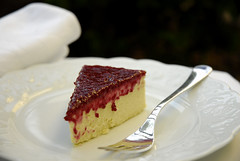 Como na cultura ocidental, o Ano Novo é um momento de comemoração e de receber convidados, por isso a comida tem um papel importante nessa data. Numa festa de Ano Novo chinês são servidos diversos pratos, já que o costume é ter tantos pratos quanto o número de convidados. Os pratos são preparados pelo seu simbolismo e para trazer boa sorte para quem os come. Oferecer doces, por exemplo, é uma maneira de expressar que você deseja uma vida doce e sem problemas para seus convidados. Nian Gao, um bolinho de arroz com folhas de Lotus feito no vapor, traz uma carreira bem sucedida e muita prosperidade. Os dumplings chamados Jiaozi representam a progressão dos anos. Eles podem ser recheados com um pedaço de açúcar, uma moeda, um amendoim, uma castanha e cada um traz um significado. Mordeu algo
Como na cultura ocidental, o Ano Novo é um momento de comemoração e de receber convidados, por isso a comida tem um papel importante nessa data. Numa festa de Ano Novo chinês são servidos diversos pratos, já que o costume é ter tantos pratos quanto o número de convidados. Os pratos são preparados pelo seu simbolismo e para trazer boa sorte para quem os come. Oferecer doces, por exemplo, é uma maneira de expressar que você deseja uma vida doce e sem problemas para seus convidados. Nian Gao, um bolinho de arroz com folhas de Lotus feito no vapor, traz uma carreira bem sucedida e muita prosperidade. Os dumplings chamados Jiaozi representam a progressão dos anos. Eles podem ser recheados com um pedaço de açúcar, uma moeda, um amendoim, uma castanha e cada um traz um significado. Mordeu algo doce? A felicidade vai bater na sua porta! Mordeu uma moeda? A sorte vai sorrir pra voc ê! Se for uma castanha, logo terá um filho homem! E se encontrar um amendoim, vai viver muito!
English:
Chinese New Year is approaching. Its specific date changes each year, as it falls on the first day of the lunar calendar (which is the first day of the new year containing a new moon). In 2011, that will be on February 3rd and this is the year of the Rabbit. New year ends on the Lantern Festival, fourteen days later.
According to legend, in Ancient China, Nian was a man-eating beast, which came out every 12 months somewhere close to winter to prey on humans. The people later believed that the Nian was sensitive to loud noises and the colour red. These customs led to the New Year celebrations. And In fact, Nian means "year" in modern Chinese.
As in Western countries, New Year is a time to receive guests and food plays an important role. Most of the dishes are prepared for their symbolism and to bring good luck to the assembled guests. There may be a multitude of dishes prepared for Chinese New Year's dinner. Custom dictates that someone should serve as many dishes as there are guests. I like this idea! Offering sweets, for example, is a way of expressing a wish for a sweet life and a year without troubles. Nian gao, a sticky rice cake steamed in lotus leaves, evokes a successful career and prosperity down the road. The dumplings, known as “jiaozi” in chinese represent the progression of the years. They are filled, then boiled or steamed. The dumplings can contain a piece of sugar, a coin, a peanut or a chestnut, each signifying a different omen. Did you just bite into a sweet dumpling? Happiness will be knocking at your door. Did it contain a coin? Luck will smile on you. Is it stuffed with a chestnut? You'll soon have a boy. Is it filled with peanuts? That's a sign of longevity... and I feel like eating all of those dumplings!





No comments:
Post a Comment